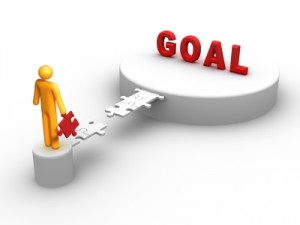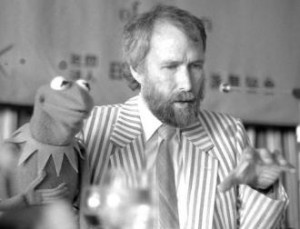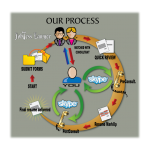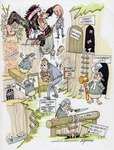Staying Positive- How To Think Like a Lawyer (even during a recession) November 9, 2009
Posted by admin in : Uncategorized , trackback There is a tendency to become overwhelmed by negativity during a period of prolonged unemployment. Skills inevitably dwindle as they are not being used, confidence declines, levels of self-esteem and motivation similarly become depressed. Through it all however I have never doubted my decision to go to law school. I knew since before I was 10 years old I wanted to be a lawyer (the baby lawyer mobile pictured was actually attached to my crib… only kidding). I always wished there was some mandatory “pre-law” track that those of us committed to the study of law could have used to separate ourselves out from the philosophy, classics, and political science majors that took the LSAT only upon a realization that their degree did not prepare them for employment they had hoped in the real-world.
There is a tendency to become overwhelmed by negativity during a period of prolonged unemployment. Skills inevitably dwindle as they are not being used, confidence declines, levels of self-esteem and motivation similarly become depressed. Through it all however I have never doubted my decision to go to law school. I knew since before I was 10 years old I wanted to be a lawyer (the baby lawyer mobile pictured was actually attached to my crib… only kidding). I always wished there was some mandatory “pre-law” track that those of us committed to the study of law could have used to separate ourselves out from the philosophy, classics, and political science majors that took the LSAT only upon a realization that their degree did not prepare them for employment they had hoped in the real-world.
Why did I want to be a lawyer? I don’t know if I can truly answer that but I think the closest answer is rooted in personality psychology. Why does anybody want to do anything? Those who actually choose their own career path make their choice after a series of behavioral experiments. The more positive reinforcement one gets from various behaviors or activities the more likely they will be to repeat that same behavior or seek out opportunities for that same reinforcement.
The little leaguer, who gets crowds to cheer, gets pats on the back from his parents and a welcoming feeling from his teammates will likely make efforts to seek out opportunities where they can achieve that same fulfillment, and perhaps pursue a career in sports.
For me whether it was negotiating to stay up past my bedtime or trying to persuade my way out of a punishment, I received my feelings of reinforcement from advocacy at an early age. Those were the types of activities that excited me and those that I sought out. I wasn’t an athlete, I wasn’t an artist, success in math and science did not come easy, and although I spent many years in the school orchestra my musical aptitude was lacking. But I did successfully represent Oedipus Rex on trial for hubris during English class, I wrote a winning moot court speech on the bus ride to the competition (standing in for a sick team member), made a student witness break down on the stand during a mock trial on toxic waste dumping, was on a semi-finalist debating team and was elected president of the student body my last year of high school. During college the trend continued, my best grades came from law related classes, receiving an A in every law class I ever took (psychology and the law, internet law, consumer law and protection, business law, the nature functions and limits of law, children and the law, etc), an A+ in “speech and debate,” and my worst grade in calculus. My progression towards law school was a natural one and one where no other path really made sense for me.
I differ from some of my blogging colleagues at Temporary Attorney and Bitter Lawyer, in that I don’t and never will regret my decision to go to law school. Of course I see the same problems with the profession that they do. The current dismal market for lawyers, the unpopular reputation lawyers receive in society, poorly ranked law schools admitting students by the hundreds (see humor print #4), unaccredited and on-line law schools that are clearly in existence only to make a buck. But I look past that, and those of you who have dreamed of being a lawyer since you can remember, you should be able to look past it too. Don’t ignore these problems, because they are serious problems that affect the job prospects of many lawyers, but don’t let them stand in the way of what you truly want to do with your life.
 Since the 16th century (and probably before then) there have been complaints of the quantity and roll of lawyers, Shakespeare famously wrote “[t]he first thing we do, let’s kill all the lawyers” in Henry the 8th. Since then they have done okay and they will continue to.
Since the 16th century (and probably before then) there have been complaints of the quantity and roll of lawyers, Shakespeare famously wrote “[t]he first thing we do, let’s kill all the lawyers” in Henry the 8th. Since then they have done okay and they will continue to.
Lawyers, more so than any other profession, ironically take up residence, almost paradoxically, at both the bottom and the top of the societal hierarchy. For instance an esteemed group of nine lawyers make crucial decisions affecting the lives of every American, similarly lawyers are involved in the efficient governing and operation of nearly every fortune 500 company in existence, and law has been the occupation of choice for twenty five of the forty four Presidents of the United States. Yet, lawyers are also regularly referred to as “ambulance chasers,” “vultures,” and “bottom feeders.” “Greedy” medical malpractice lawyers are blamed as being a main component of the country’s current health care woes, and there are probably enough lawyer jokes around to fill every book in the library of congress… twice over.
Why this dichotomy? The reality is everyone likes to make fun of lawyers until they need one. Once a person’s rights are contingent upon the outcome of a legal process these lawyers become “sharks,” “brilliant jurists,” and “creative thinkers.” It’s all a matter of perspective.
I think Joseph Choate explained the role of lawyer’s most accurately when he explained:
“I believe a man could be of greater service to his country… in the foremost ranks of the Bar than anywhere else. To be a priest in the Temple of Justice to serve at her altar and aid in her administration, to maintain and defend those inalienable rights of life, liberty and property upon which the safety of society depends, to succor the oppressed and to defend the innocent to maintain constitutional rights against all violations whether by the executive, by the legislature, by the relentless power of the press or worse of all by the ruthless rapacity of an unbridled majority. To rescue the scapegoat and restore him to his proper place in the world – all this seems to me to furnish a field worthy of any man’s ambition, Law.”
One of my hobbies is collecting legal memorabilia (statutes, prints, desk ornaments, music boxes, etc). I have this one piece that hangs in my room called “A Glimpse of the Past through Law.” It is a plaque that has 32 postal stamps of famous lawyers on the front and an inspirational saying. It says:
“The law profession is very well represented among the who’s who in the United States from the very early days to the present. A very wide cross section of people who have been lawyers also had prominent positions, especially political, and positions from which their contributions have been keenly felt in the fabric of our society. Those in the profession of law seem to be in very good company.”
During a time when it easy to believe no-one values the J.D. any longer, it is easy to lose sight of the reasons we all went to law school. It is important not to, a law degree is one of the most versatile degrees one could achieve and one that comes only after much blood, sweat and tears (well not literally for most, but you get the idea).
It is largely impossible to have any interest in attending law school without receiving some glossy brochure from a law school touting the benefits of “thinking like a lawyer.” What does it mean to “think like a lawyer” and why are those skills valued anyway? At its core law school equips students with an unmatched skill set of critical thinking, incredible attention to detail, and the ability to cogently and logical articulate a position based in evidence.
I read this account at a civil procedure blog called “Stay of Execution” the blogger puts across a great account of “thinking like a lawyer”:
“Thinking like a lawyer is a kind of precision of thought that’s a wonderful and unique skill. You learn to parse a question down into its component parts, to carve away the emotion and the confusion and leave only the essence. You learn to forget people and think about principles. You learn how to allocate responsibility. You don’t get distracted by the problem until you understand whose problem it is, and whether it really needs to be decided now or might turn out only to be a problem later. You become comfortable with life’s unfairness, and think instead about the allocation of risk. You focus a lot more on process than on result — what questions will we have had to answer before we get to the final answer? What are the rules for answering those questions?”
 I saw an example of admiration toward lawyerly thinking, anecdotally, when I was listening to an oral argument of Maryland v. Pringle at oyez.com for a class on criminal procedure during my second year of law school.
I saw an example of admiration toward lawyerly thinking, anecdotally, when I was listening to an oral argument of Maryland v. Pringle at oyez.com for a class on criminal procedure during my second year of law school.
Here is a little background on the Pringle case: the defendant (Pringle) was a passenger in the front seat, of a car pulled over for speeding. He was arrested when cocaine was found behind the backseat arm-rest (in a four door sedan). There were three passengers in the car. Pringle’s argument was that there was no probable cause for the arrest particular to him. In other words he was arguing there was no proof that he personally was tied, at all, to the cocaine, and that therefore he should not have been arrested. He in a sense argued he was being improperly treated as “guilty by association.” The court ultimately ruled that it was “an entirely reasonable inference” by the police officer “that any or all of the car’s occupants had knowledge of, and exercised dominion and control over, the cocaine.”
However, during oral argument the judges pushed the boundaries as to whether this type of rule could be dangerous and in what circumstances. Here are some choice exchanges from the case (note Mr. Blair was arguing for the petitioner):
——
Justice Stevens: What if there had been four people in the car?
Mr. Bair: I don’t know that four people would change things.
Justice Stevens: How about six?
Mr. Bair: I think within the…
Justice Stevens: Or what if it was a minivan and there were eight in the minivan?
———–
Justice Ginsburg: How about if it had been a bus?
Now, we’ve gone from the sedan to the minivan, how about the bus?
Mr. Bair: I think a bus is different, Your Honor.
I think a bus changes things significantly in the… in the context of, of course, the numbers of people are much greater, and then there’s…
Justice Scalia: Are you talking about a public bus or you’re talking about a chartered bus?
————-
Justice Scalia: What about five? You’re going to arrest all five? Even… I mean, you know, it gets worse and worse…
Mr. Bair: Well, of course.
Justice Scalia: 10 percent chance, there are 10 of them now…
Mr. Bair: And… and…
Justice Scalia: so the chance that any individual one did it is 10 percent. That’s still enough?
———
Justice Stevens: But if you had to reduce it to a percentage figure, what would you call the percentage required for probable cause?
Mr. Bair: I don’t know that I could, Your Honor. I really don’t know that it’s useful to…
Justice Stevens: But it’s less than 50, though, I gather?
Mr. Bair: Yes. Your… the cases of this Court has said…
Justice Stevens: So that takes care of the two people in the room, but when you get down to 33-1/3 with three people?
Mr. Bair: I think… I think three people clearly would be…
Justice Stevens: And with four people it would be 25 percent. Is that enough?
Mr. Bair: Probably, probably.
Justice Kennedy: Probably.
Justice Souter: You… you agree… you agree that at some point the probability is… when the numbers of people present keep increasing, at some point the probability is going to be too slim?
Mr. Bair: Yes, I agree with that.
—————
The questioning continued:
“What if the drugs were found in the trunk?”
”What about a door pocket only accessible to the driver?”
“What if two of the passengers were hitchhikers?”
Having been through a year and a half of law school at the time, the above exchanges to me were par for the course. This is exactly the type of reasoning and questioning a law students become accustomed to after sitting through countless hypotheticals in law school classrooms, reading cumbersome and complex appellate decisions, weathering the Socratic method, preparing for moot court presentations, and the like.
But to a layman this type of exchange can be eye opening. Most people believe a law is a law. They believe laws come from well educated law makers who get their power from the people, and have carefully thought of the situations covered by the law. The very thought that there can exist many situations the legislature or the legal system never contemplated, can be shocking to the majority. How could there be so much uncertainty to a law? How could there be so many fringe situations never thought of by those passing it that could directly implicate the law?
I was listening to the case while I was home on a school break at my dining room table, and my father a non-lawyer overheard the argument. He explained to me he couldn’t believe all the examples the Justices were coming up with, and said he had a “new respect” for the law just after listening to the exchange.
Some may see this example as “typical lawyering” where hairs are split over the minutest of details but the reality is that rules have to be crafted clearly and how they are applied, to all members of society fairly, is of crucial importance to the efficient functioning of a modern nation. Like it or not, these detailed questions focusing on the minutia of a situation are the very questions that must be asked to effectively govern, and lawyers are trained to ask them.
Micheal C. Dorf a noted constitutional law scholar, now at Cornell Law School, wrote an article on “thinking like a lawyer” where he echoed some of my above sentiments:
“the law often requires much greater precision than is needed in other spheres of life. A person’s ability to avoid going to prison or to keep her fortune can turn on exactly what a word in a statute or contract means, and accordingly lawyers must learn to pay careful attention to nuance.”
Given the unique skill set lawyers have, shouldn’t there be a greater demand for lawyers hired to think about these types of important issues? Especially in a climate of regulatory change like we have coming about currently? One would think, yes. Though compounding the jobless problem however, may be a simple case of supply and demand. Are there too many lawyers? Time magazine asked this exact question in 1991, but the upshot in legal activity from early 2000, proved the question may have been a bit premature.
During periods of economic downturn it is natural to ask about the role of any profession, especially when the ranks of joblessness reach lows the profession is not used to. According to informal sources, typically lawyer unemployment sits at about a quarter of the national mark, at times it has even been stated to be in the 1% range. But now in 2009, during the current “top down” economic recession it has been reported by the New York Times that:
“white-collar unemployment rose faster in the past year than in any other recession dating to at least the 1970s, even the devastating downturn of the early 1980s.”
And that was in January; since then things have only gotten worse. So in many respects it is not fair to judge a profession at its worst. A rough period of unemployment is not enough to sound the death knell for prospective law students, nor should it. However, any system of supply and demand dictates that market forces control, if periods of unemployment are prolonged or if the legal sector rebounds more slowly or less completely than other sectors, a shift in the number of students enrolling in law school on a yearly basis—especially those law schools with lower employment prospects will likely be seen.
 The bottom line I think, however, is there will always be room for good lawyers who have a passion for what they are doing. There will always be opportunities to make a lucrative living by studying the law. At times it may be harder than others, and at times it may cause young lawyers to seriously doubt our career choices, but if your commitment to the law is a true one, this jobless lawyer is convinced, things will eventually look up.
The bottom line I think, however, is there will always be room for good lawyers who have a passion for what they are doing. There will always be opportunities to make a lucrative living by studying the law. At times it may be harder than others, and at times it may cause young lawyers to seriously doubt our career choices, but if your commitment to the law is a true one, this jobless lawyer is convinced, things will eventually look up.
In 2005 after I had just been admitted to law school, I was invited back to my old high school as the graduation Key Note Skeapker to give a speech to the graduates. I spoke at length about the importance of choosing something in life for “work” that makes you happy. Something you can enjoy each and every day that you get up and go do it. For many this excludes the law for some (like myself) it most definitely includes it (and maybe little else). But regardless of where you fall on the law fondness spectrum, the advice is sound. I was reminded of it when I came across a print out of my old speech over the weekend. I offer it up here in hopes of encouraging those affected by the economy to never lose sight of the importance of doing what you love and what will make you personally happy. Even if you most compromise your values in the short term- make to do all you can to never lose sight of them.
 Excerpt to graduates from my 2005 speech.
Excerpt to graduates from my 2005 speech.
Remember that Jim Henson’s Kermit the frog started out as his mom’s coat and two ping pong balls, Steven Spielberg’s first film was financed from a tree-planting business he started when he was 12, JK Rowling’s Harry Potter was born on a grease stained napkin in a 24 hour diner, as a teenager Calvin Klein spend hours sketching women in suites and dresses simply because it fascinated him, and Oprah Winfrey learned to read aloud and performed recitations by the age of 3! All of these people followed their dreams they engaged their passions—they all do what they feel they were meant to do, what they knew they’ve always wanted to do. So follow your heart and do what you’ll love. And if you don’t want to listen to me, maybe you’ve heard of a guy named Confucius, Confucius once wisely said “Choose a job you love, and you will never work a day in your life”. My goal today is to inspire each and every one of you to ‘never to work a day in your life’, and no I’m not encouraging you to sit on the unemployment rolls, I’m talking about work in the Confucian sense where if you do what you love it cannot be considered work at all.
To quote one of the famous artist works of our time, Katie Holms in “Batman Begins” says “it’s what you do that defines you.” So when it comes time, choose what you will do carefully, for it will define you– and make sure that definition is something you’re proud of, something you’re good at, something that isn’t truly work for you– because you love it and you couldn’t think of doing anything else but it!
-
tb1
-
JoblessLawyer
-
nandoTTR
-
JoblessLawyer
-
ELES
-
JoblessLawyer
-
ELES
-
Jobless3L
-
http://legallynoted.wordpress.com/2009/11/17/staying-postive-how-to-think-like-a-lawyer-even-during-a-recession/ Staying Postive- How To Think Like a Lawyer (even during a recession) « LegallyNoted
-
6th




